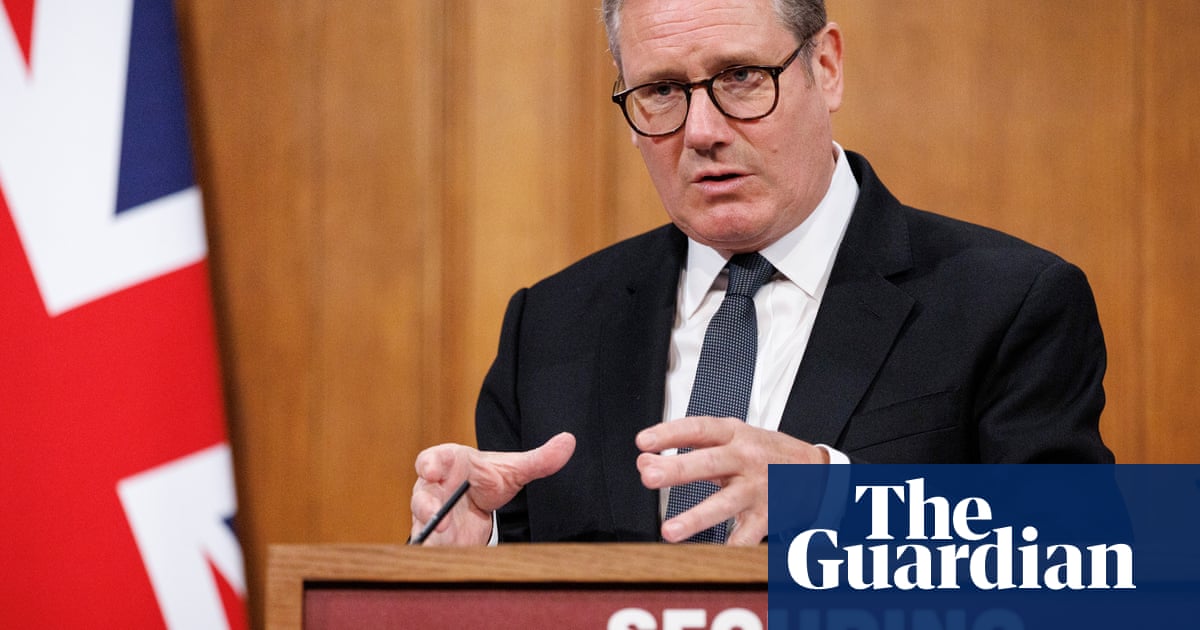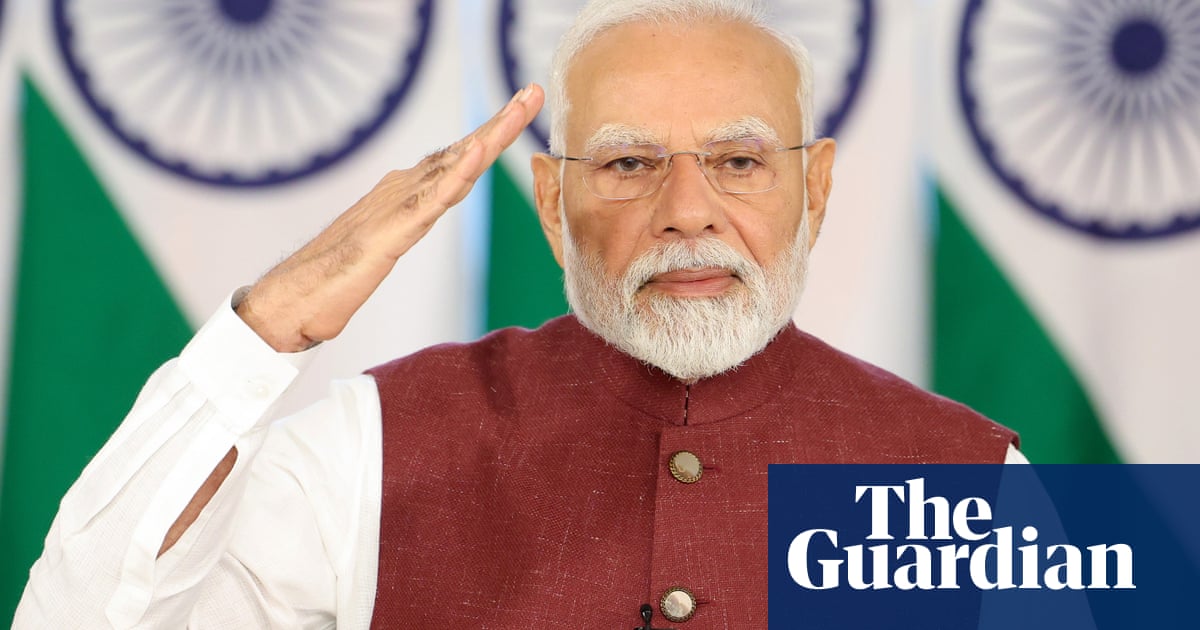Immigration is a tinderbox. No one listening to voters on doorsteps in recent local elections could deny this. Nothing Labour does will satisfy those few who rate immigration as their top concern, but its new immigration plan is a serious endeavour to stop cheap labour undercutting pay. How will it go down? If Labour HQ celebrates a splash of rightwing front pages whooping up its toughest measures, those same headlines may propel more Labour people into the arms of the Liberal Democrats and Greens. But there is more depth to Labour’s policy than merely chasing Nigel Farage.
An old theory – that immigration squeezes out British people by taking available jobs – is being turned into a real-life social experiment. We shall now see if what sounds plausible works in practice. Is cheap labour really the cause of Britain’s high rate of economic inactivity and businesses’ rotten record in training new employees?
There will be no more visas for low-skilled workers, especially foreign care workers. That creates a problem for all of the care homes that have come to depend on immigrants. Will the country’s 1.5 million out-of-work people, or its 9 million economically inactive people, take on the estimated 150,000 vacancies that exist in the care sector? Another group the government is targeting are the 10,000 people who paid a fortune to fraudulent recruiters for visas to do jobs that didn’t exist. The government is due to match them with care jobs, while people already here on visas who want to stay longer will be able to get extensions if they, too, take on these roles.
But will it work? Nearly a fifth of care workers come from overseas, and care providers protest vigorously that their jobs attract no applicants. Martin Green, the chief executive of Care England, has said the plans deal “a crushing blow to an already fragile sector”. But only higher pay will entice people who can earn more in Aldi. The government has delayed its promised fair pay agreement for care workers to 2028. Decades of failure to reform care will stretch into the blue yonder. Now we’ll see if people in Britain will take the place of barred migrants.
Yvette Cooper says there will be 50,000 fewer low-skilled visas issued this year. It’s a modest target. It’s good to make employers wanting to bring in staff from overseas prove they are training British employees first. For those employers that are cutting home apprenticeships, Starmer has warned that the cost of engineering visas will rocket.
But blocking visas is itself a risky experiment that may limit Labour’s other big ambition: growth. If care homes or other businesses fold (chefs, florists and more are on the list of occupations barred from having low-skilled visas issued), Keir Starmer may beat a retreat. Politically, it may not be wise to take another swing at the rising number of elderly voters by assaulting their threadbare care sector. Since old people are the most opposed to migration, maybe the dilemma should be put to them: immigration or care?
Universities have largely escaped a raid on the already diminished numbers of foreign students. Many universities are already teetering on the brink of bankruptcy. But a proposed new levy on foreign students risks undermining them, weakening their soft power. This seems madness: more than a quarter of the world’s countries have leaders who were educated here in Britain. Meanwhile, highly skilled workers will still get visas. That’s sensible: a rich supply of scientists will be fleeing stricken US universities, and the EU Horizon programme has granted Britain £500m in research funding.
Eye-catching announcements that pleased the rightwing press included the requirement for a higher standard of English to get a visa. So did the plans to make it easier to deport foreign criminals. A law that toughens interpretation of article 8 of the European convention on human rights to make judgments on the “right to a family life” more consistent is sensible, though the suggestion that immigration lawyers were using this to make deportation more difficult was bogus. When Theresa May told the Conservative party conference in 2011 about “the illegal immigrant who cannot be deported because, and I am not making this up, he had a pet cat”, the judiciary quickly pointed out that she was the one making things up.
Though this month’s figures will show total migration falling fast since last summer, the politically explosive details are rising numbers of people arriving by boat and the 38,000 asylum seekers currently housed in hotels. Runcorn’s 425-bed hotel full of asylum seekers waiting without work has caused deep local resentment. Starmer’s message of “compassion and control” talks across a divide within his own party: some MPs have many large migrant constituencies, while others fear anti-migrant voters. His message of integration, based on rewarding those who contribute most, will strike the right chord for some, but not others.
This immigration reform should be an opening for new honesty about trade-offs and choices. Treat voters seriously. Don’t take fright at Reform, and confront these cynical manipulators and untruth tellers head-on. Just over half of voters want fewer migrants (I would have expected more), but it’s the priority issue for only 27% of those polled. Reform’s policies are impossible: on Monday, its deputy leader, Richard Tice, repeated manifesto pledges of “net zero migration” and promised to “freeze migration” (except doctors and nurses). Really?
Labour should be looking its enemy in the eye and defying this utter nonsense. The old rightwing trick of casting anyone who challenges their impossibilism as the “metropolitan elite” has often paralysed politicians who fear being seen as out of touch. Debate over this policy should expose the Faragists for the snake-oil charlatans they are.
Many people, particularly on the left, will accuse Labour of shoddy vote-chasing, and Starmer of resorting to nativist language, focusing on his warning about an “island of strangers”. Labour MP Nadia Whittome talked of “anti-migrant rhetoric” as being both “shameful and dangerous”. Zarah Sultana, elected in 2019 as Labour MP in Coventry South but since suspended, also weighed in quickly. “Did Nigel Farage write this speech?” she asked on Bluesky. Managing turbulence and blowback, keeping the Labour coalition on board while being seen to address wider concerns, will be the challenge now.
Still, there is more depth to this policy than chasing populists. Yvette Cooper has long believed there’s nothing social democratic about loose borders letting in cheap labour to undercut stagnating British pay. If cheap labour was so good for growth, how come the economy has been flatlining while immigration rose? And exactly whose growth was is it good for in this most unequal country? These old arguments are now being subjected to a real-time experiment. Soon we will know, either way.
-
Polly Toynbee is a Guardian columnist
-
Do you have an opinion on the issues raised in this article? If you would like to submit a response of up to 300 words by email to be considered for publication in our letters section, please click here.

 3 hours ago
4
3 hours ago
4













































